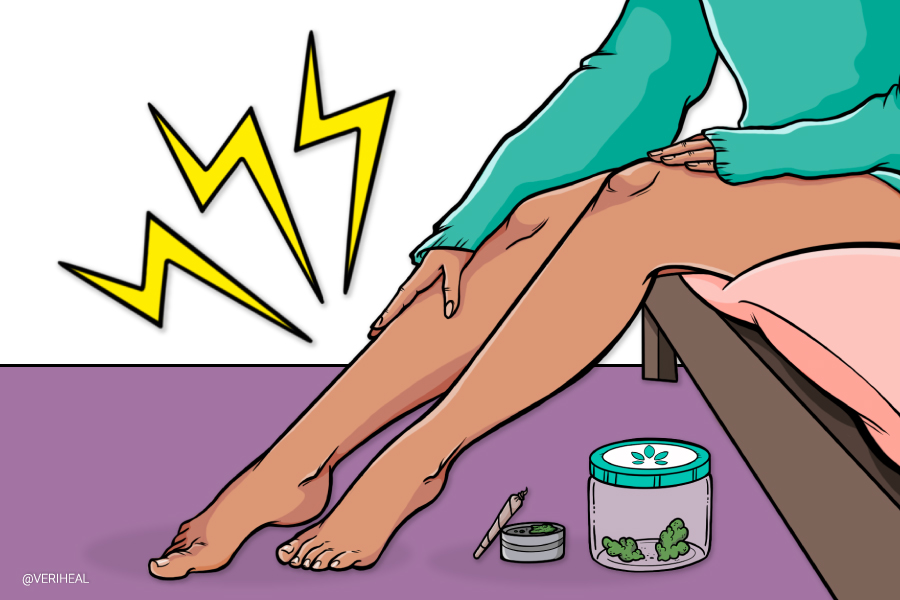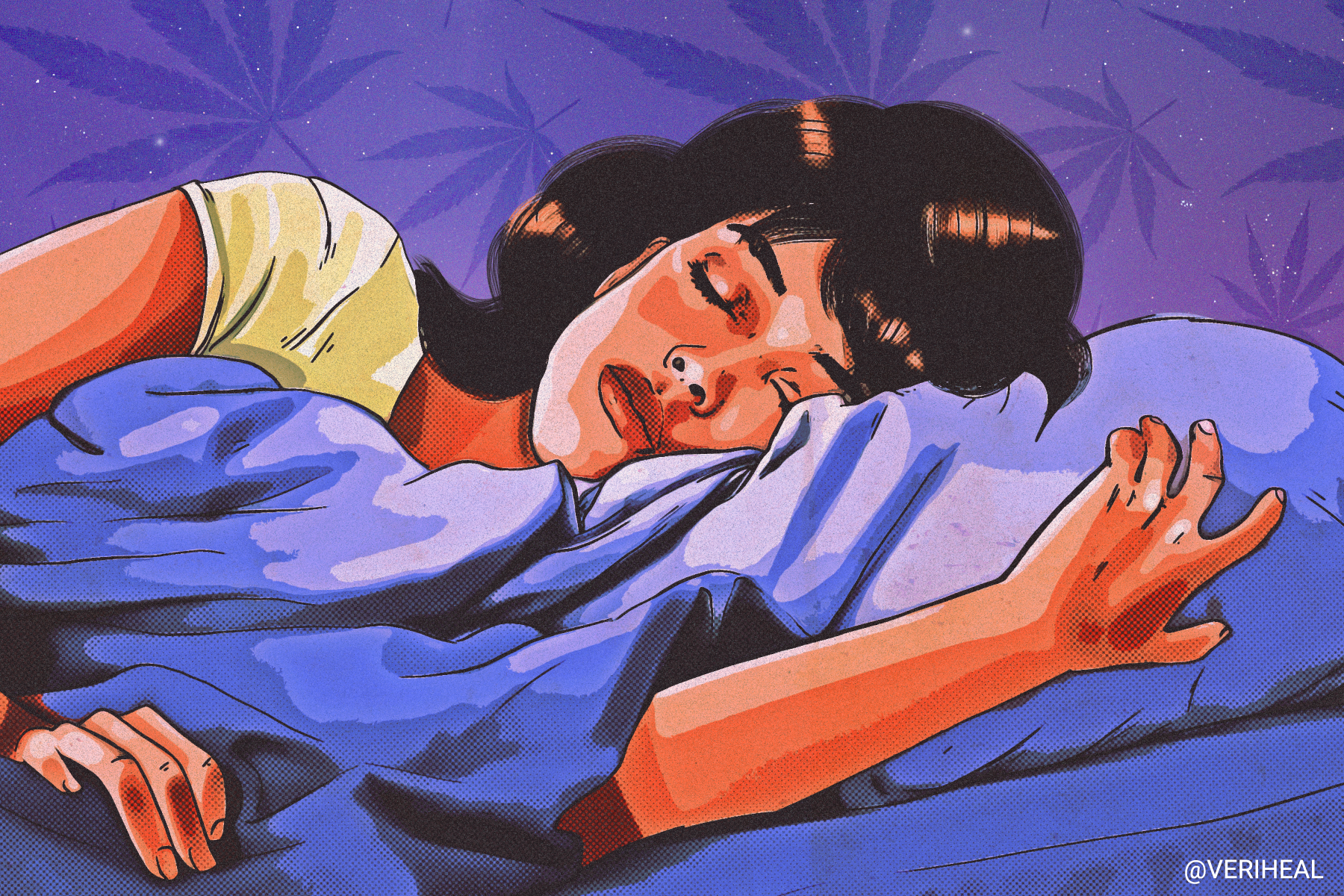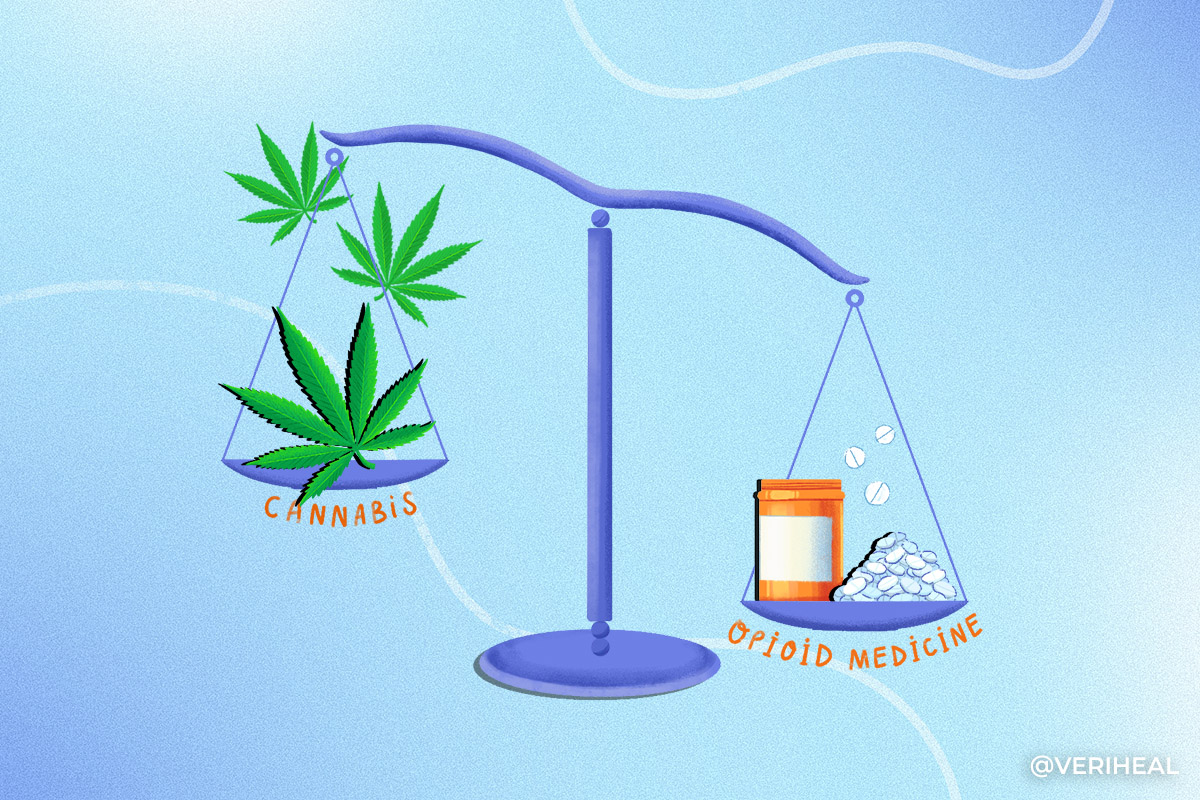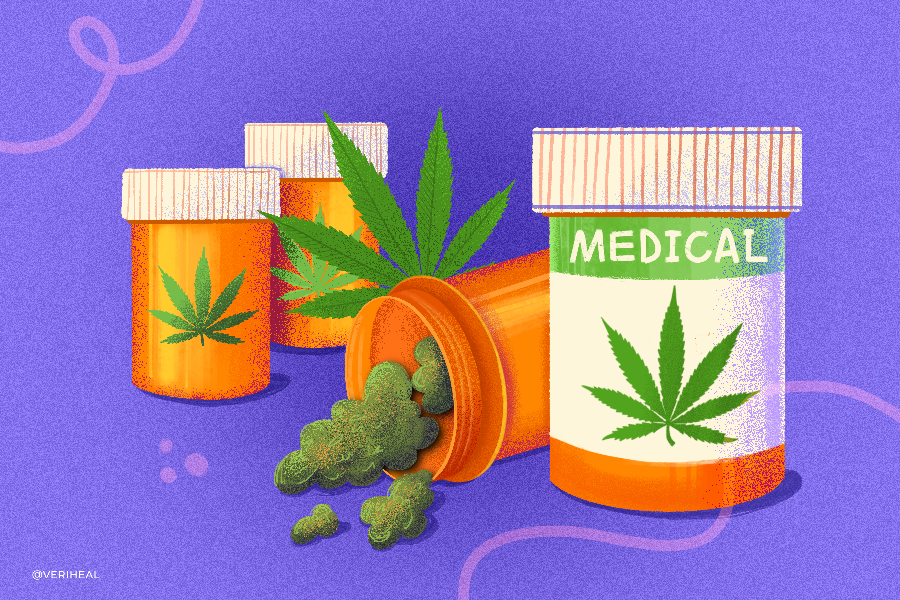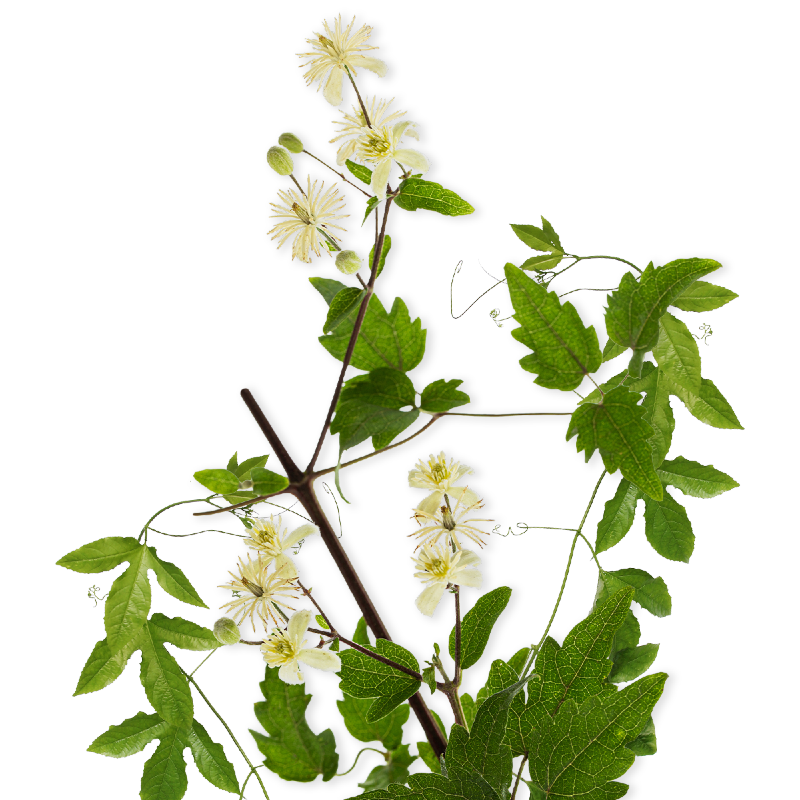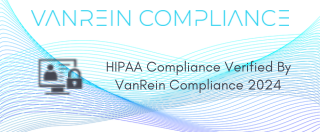Medical Marijuana for Huntington Disease
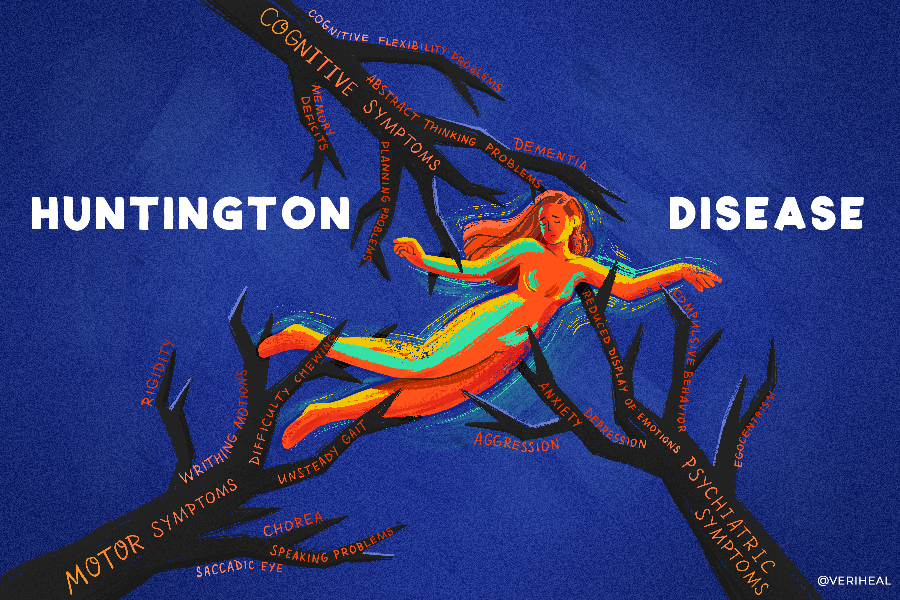
- What are the Signs, Symptoms, and Types of Huntington’s Disease?
- Huntington’s Disease: Causes and Complications
- Are Cannabinoids a Good Treatment Option for Huntington’s Disease?
- How Does the Endocannabinoid System (ECS) Play a Role in Treating Huntington’s Disease?
- What Preparations of Cannabis are Suitable for Huntington’s Disease?
- Talking to Your Doctor About Huntington’s Disease Treatments
The brain is undoubtedly the most important organ in the human body. Responsible for controlling and coordinating a wide range of actions and reactions, it helps us to process thoughts, emotions, memories, feelings, and so much more. Unfortunately, for every 2.7 per 100,000 inhabitants worldwide, a rare, inherited disease known as Huntington’s disease prevents the brain from functioning as it should and tragically shortens lifespan (3).
As a progressive disease, Huntington’s tends to worsen as time goes by. According to the Center for Neurological Treatment & Research, approximately one in every 10,000 people battle this type of nerve cell degeneration daily. That works out to around 30,000 people in the United States (8).
Huntington’s disease significantly affects a person’s functional abilities because of significant neurodegeneration and usually results in death. Death is common within 10-30 years from when symptoms (including thinking (cognitive), movement, and psychiatric disorders) first arise.
Most patients will typically deal with uncontrollable limb, face, and trunk movements (chorea), gradual loss of mental capacity, and psychiatric hardship. Eventually, patients usually struggle to care for themselves without remission.
While there is no cure for Huntington’s disease, medications are available to help patients manage the symptoms. Among the many medicines that patients can choose from is cannabis, which is being studied for a variety of neurologic disorders.
Not only are doctors, scientists, and patients exploring the potential of using cannabis to ease Huntington’s disease motor symptoms but also, some evidence indicates that cannabis-derived compounds, aka ‘Cannabinoids,’ may be effective in treating neuropathic pain and spasticity.
What are the Signs, Symptoms, and Types of Huntington’s Disease?
First described by American physician George Huntington back in 1872, Huntington’s disease is a genetic disorder of the central nervous system (6). The disease causes many symptoms, from uncontrolled movements (chorea) to mental deterioration and emotional disturbances.
Huntington’s negatively impacts the brain, which controls breathing, emotion, hunger, memory, motor skills, touch, thought, temperature, vision, and every process that regulates our bodily functions (4). To get a proper medical diagnosis, visiting a doctor, specialist, or healthcare practitioner is essential.
Patients who are diagnosed with Huntington’s may experience symptoms at any time. However, they usually arise between the ages of 30 and 40 (adult-onset Huntington’s disease). If someone develops the disease before age 20 (juvenile Huntington’s disease), the symptoms may intensify faster than they would with adult-onset Huntington’s disease.
In most cases, people with Juvenile Huntington’s disease will pass away within ten years after symptoms initially transpire. If you have a known family history of HD, the sooner you spot the signs of HD, such as memory impairment, tremors, or weight loss, the sooner you can obtain a suitable treatment to enhance the quality of life and possibly reduce symptom severity.
Doctors categorize the symptoms of Huntington’s disease as follows:
- Behavioral Symptoms – Fidgeting, irritability, and compulsive behavior
- Cognitive Symptoms – Amnesia, delusion, concentration problems, confusion, difficulty thinking, and processing information
- Muscular Symptoms – Coordination problems, strange walking, heightened muscle activity, muscle loss, muscle spasms, and involuntary movements
- Mood Symptoms – Apathy, anxiety, and mood swings
- Psychological Symptoms – Delirium, depression, hallucination, and paranoia
- Speech Symptoms – Impaired voice and difficulty speaking
Huntington’s Disease: Causes and Complications
The primary cause of Huntington’s disease is a malfunctioning gene on chromosome 4 — one of the 23 chromosomes that contain a human’s complete genetic code (9).
Since the defect is “dominant,” anyone who inherits a single faulty copy from a mother or father with HD will, at some stage in their life, acquire the disease (9). However, it also means that unaffected children will have no chance of passing on HD since they did not inherit any copies.
People with European ancestry face a higher risk of developing Huntington’s disease, with an estimated three to seven out of every 100,000 people of European descent believed to have HD (16). Currently, the only known cause for HD is heredity. The disease is inherited in an autosomal dominant pattern (7).
Based on information published on the Huntington’s Disease Society of America website, HD is caused by a DNA malfunction called ‘huntingtin,’ first identified in 1993 (13). Although every living human has the huntingtin gene, only the people who inherit the defective gene (HD mutation) will develop HD and, consequently, carry a 50% chance of passing it onto their offspring (20).
One study featured in the Journal Molecular Degeneration found that multiple pathways contribute to the pathogenesis of Huntington’s disease (10). Research also suggests that environmental factors may play a role in the onset and progression of neurodegenerative brain diseases, such as Huntington’s (18).
Inability to access treatment can lead to a range of complications, such as infection, physical injury, chronic stress, tumor, high blood pressure, heart attack, or malnutrition. Due to a combination of cognitive, physical, and psychiatric symptoms, patients will likely endure daily difficulties and need help with activities of daily living (ADLs). These symptoms together may compromise the immune system and increase the chances of developing fatal diseases.
For example, a long-term study conducted between 1952-1979 in Victoria, Australia, discovered that over 51% of patients with HD lost their lives after contracting pneumonia (11). Unfortunately, research indicates that suicidal ideation is common in HD patients (19). This emphasizes the importance for HD patients to have a supportive network of family and healthcare professionals.
Are Cannabinoids a Good Treatment Option for Huntington’s Disease?
Although current treatments cannot prevent the onset of behavioral, mental, and physical deterioration associated with HD, they can prove helpful in making the symptoms more manageable. Scientists have taken significant strides toward clarifying the pathogenesis of this often fatal disease since the gene mutation was discovered.
Preclinical research hypothesizes that cannabis may ease the symptoms of HD and may even reduce the rate at which it progresses (1). The green plant’s naturally-occurring compounds, which include cannabinoids, terpenoids, and flavonoids, possess therapeutic capabilities that could potentially benefit HD patients.
In particular, natural and artificially-produced cannabinoids exert anti-inflammatory, antioxidant, and analgesic effects (17). The non-psychoactive compound cannabidiol (CBD) harbors neuroprotective properties, meaning that this cannabinoid may repel neuron degeneration in the brain and spinal cord by multiple mechanisms. Furthermore, cannabinoids may effectively replace/regenerate lost/damaged nerve cells. As a direct effect, the neuronal population can increase.
A literature review titled “Medical Marijuana Effects in Movement Disorders, Focus on Huntington Disease” highlighted cannabis’ ability to improve the “neurologic symptoms of spasms, tremors, spasticity, chorea, and quality of sleep.” Researchers analyzed a total of 22 studies to gather their findings, suggesting that medical marijuana may ease rigidity and other specific motor symptoms associated with HD (1).
How Does the Endocannabinoid System (ECS) Play a Role in Treating Huntington’s Disease?
Buried inside our bodies is an endocannabinoid system (ECS). Over the last decade, researchers and scientists have accomplished many milestones in better understanding the role of the ECS in the modulation of various progressive neurodegenerative diseases.
This biological system contains endocannabinoids — endogenous lipid-based retrograde neurotransmitters. They manifest throughout the peripheral nervous system and vertebrate central nervous system. After binding with cannabinoid receptors and cannabinoid receptor proteins, endocannabinoids produce a vast array of effects.
The complex cell signaling network controls and regulates an abundance of the body’s critical functions such as:
- Eating
- Emotions
- Sleeping
- Temperature management
- Pain control
- Learning
- Memory
- Immune responses
- Inflammatory responses (14).
An article titled “Therapeutic implications of the endocannabinoid system in neurodegenerative diseases” highlighted how these lipid metabolites help to balance neuronal, glial, and endothelial cell function, as well as release anti-inflammatory, neuromodulatory, anti-excitotoxic, and vasodilatory effects (15).
Aside from the neuroprotective potential that cannabinoids possess in cases of HD, a growing body of clinical trial research and placebo-controlled studies allude to the power of medical cannabis’ neuroprotective qualities in cases of brain injury, cerebral ischemia, seizure-related excitotoxicity, and neuroinflammation. (5)
What Preparations of Cannabis Are Suitable for Huntington’s Disease?
Cannabis is a versatile plant that is available in a variety of preparations. When it comes to using cannabis to help manage the symptoms of HD, you will likely want to find a product that can produce fast, onset symptom relief, such as vapes, smokable cannabis, water-soluble cannabis powder, and tinctures.
Alternatively, choose edibles, pills, capsules, tablets, or transdermal patches for longer-lasting relief. Although the effects may take longer to kick in with these types of cannabis preparations for HD, you are likely to experience symptomatic relief for much longer. Whatever option you choose, start with a low dose and increase slowly, according to your personal experience.
As the disease progresses, patients may no longer be able to do or tolerate cannabis consumption methods as they did before. In advanced or late-stage HD, rectal suppository formulations could be preferable. Rectal cannabis can be purchased at some dispensaries or readily made at home using cocoa butter, sunflower lecithin, a mold, and an oil base. These cannabis products can give the patient much-needed relief from symptoms such as decreased appetite, pain, insomnia, or agitation/aggression.
Talking to Your Doctor About Huntington’s Disease Treatments
Preparing for an appointment with a doctor or caregiver is an integral step in finding a solution to your symptoms. Normally, patients are referred to a neurologist once they notice any signs or symptoms of Huntington’s disease. (12)
Doctors specializing in this field will generally conduct a medical examination and ask you about any recent lifestyle changes, family medical history, and medications/drugs you currently take.
In some cases, a brain scan will be necessary, in addition to a blood test, to confirm your carrier status of the defective HD gene. These tests won’t change your treatment but are needed for documentation, verification, disability, and insurance purposes — to prove you have HD through official documentation.
Following a diagnosis, you can talk about the medical uses of cannabis-based treatment with a doctor. If approved to obtain medical marijuana, you will need a patient identification card.
Complementary Treatments Worth Discussing with Your Doctor
Giving your body’s natural healing capabilities a boost is possible with complementary medicine. Also known as “complementary and alternative medicine (CAM)” and “complementary therapies,” these healing resources are generally welcomed in cases of HD.
There is currently a lack of published information on the use of CAM for Huntington’s Disease (21).
However, research shows acupuncture and traditional Chinese medicine (TCM) boost the nervous system and address various HD-related mental health problems, including anxiety, depression, and mood swings (2).
Combined with cannabis use, which possesses natural neuroprotectants, anti-depressant, and antioxidant properties, patients may benefit from improved sleep quality and life.
Moreover, cannabis could help patients control the physical symptoms of HD, such as involuntary movements and shaking hands.
Keep in mind that the cannabis plant, as well as the other types of complementary treatments mentioned in this article, should never be used as a substitute for doctor-prescribed medications. Plus, the use of medical marijuana that contains tetrahydrocannabinol (THC) could produce mind-altering side effects. CAM should be implemented with any existing treatment regimen to amplify healing and enhance overall health and well-being.
Note: The content on this page is for informational purposes only and is not intended to be professional medical advice. Do not attempt to self-diagnose or prescribe treatment based on the information provided. Always consult a physician before making any decision on the treatment of a medical condition.
1. Akinyemi, E., Randhawa, G., Longoria, V., & Zeine, R. (2020). Medical marijuana effects in movement disorders, focus on Huntington Disease; a literature review. Journal of Pharmacy & Pharmaceutical Sciences, 23, 389–395. https://pubmed.ncbi.nlm.nih.gov/33064979/
2. Art of Wellness Acupuncture & Traditional Chinese Medicine (TCM). (2022, March 11). Retrieved December 13, 2022, from https://myartofwellness.com/how-to-treat-huntingtons-disease-with-acupuncture-and-tcm/#:~:text=Acupuncture%20and%20TCM%20can%20be,%2C%20anxiety%2C%20and%20mood%20swings
3. Brady, R. (2019, March). Rare Disease Clinical Research Untapped Potential in MENA. Retrieved December 13, 2022, from https://www.terrapinn-cdn.com/conference/world-orphan-drug-congress-usa/Data/clinart-white-paperrare-diseaseuntapped-potential-in-mena.pdf
4. Brain anatomy and how the brain works. Brain Anatomy and How the Brain Works | Johns Hopkins Medicine. (2021, July 14). Retrieved December 13, 2022, from https://www.hopkinsmedicine.org/health/conditions-and-diseases/anatomy-of-the-brain#:~:text=What%20is%20the%20brain%3F,central%20nervous%20system%2C%20or%20CNS
5. Fernández-Ruiz, J., Moro, M. A., & Martínez-Orgado, J. (2015). Cannabinoids in neurodegenerative disorders and stroke/brain trauma: From preclinical models to clinical applications. Neurotherapeutics, 12(4), 793–806. https://www.ncbi.nlm.nih.gov/pmc/articles/PMC4604192/
6. Flier, J. S., Underhill, L. H., Martin, J. B., & Gusella, J. F. (1986). Huntingtons disease. New England Journal of Medicine, 315(20), 1267–1276. https://pubmed.ncbi.nlm.nih.gov/2877396/
7. Heidi Moawad, M. D. (2021, February 12). Inheritance and causes of Huntington’s disease. Verywell Health. Retrieved December 13, 2022, from https://www.verywellhealth.com/huntingtons-disease-causes-5091967
8. Huntington’s disease overview, incidence and prevalence of HD. NEUROCNTR. (n.d.). Retrieved December 13, 2022, from http://www.neurocntr.com/huntingtons-disease.php
9. Huntington’s disease. Alzheimer’s Disease and Dementia. (n.d.). Retrieved December 13, 2022, from https://www.alz.org/alzheimers-dementia/what-is-dementia/types-of-dementia/huntington-s-disease#:~:text=Huntington’s%20disease%20is%20a%20progressive,will%20eventually%20develop%20the%20disease
10. Li, S., & Li, X.-J. (2006). Molecular Neurodegeneration, 1(1), 19. https://molecularneurodegeneration.biomedcentral.com/articles/10.1186/1750-1326-1-19
11. Liou, S., & Liou, S. (2016, August 17). Complications of Huntington’s disease. HOPES Huntington’s Disease Information. Retrieved December 13, 2022, from https://hopes.stanford.edu/complications-of-huntingtons-disease/
12. Mayo Foundation for Medical Education and Research. (2022, May 17). Huntington’s disease. Mayo Clinic. Retrieved December 13, 2022, from https://www.mayoclinic.org/diseases-conditions/huntingtons-disease/diagnosis-treatment/drc-20356122#:~:text=Preparing%20for%20your%20appointment,initial%20visit%20to%20your%20provider
13. Overview of huntington’s disease – huntington’s disease society of america. Huntington’s Disease Society of America – Family Is Everything. (2020, November 6). Retrieved December 13, 2022, from https://hdsa.org/what-is-hd/overview-of-huntingtons-disease/
14. Peter Grinspoon, M. D. (2021, August 11). The endocannabinoid system: Essential and mysterious. Harvard Health. Retrieved December 13, 2022, from https://www.health.harvard.edu/blog/the-endocannabinoid-system-essential-and-mysterious-202108112569
15. Therapeutic implications of the endocannabinoid system in neurodegenerative diseases. (2015). Clinical Case Reports and Reviews, 1(4). https://www.oatext.com/Therapeutic-implications-of-the-endocannabinoid-system-in-neurodegenerative-diseases.php
16. U.S. National Library of Medicine. (n.d.). Huntington disease: Medlineplus Genetics. MedlinePlus. Retrieved December 13, 2022, from https://medlineplus.gov/genetics/condition/huntington-disease/
17. Valeri, A., & Mazzon, E. (2021). Cannabinoids and neurogenesis: The promised solution for neurodegeneration? Molecules, 26(20), 6313. https://www.ncbi.nlm.nih.gov/pmc/articles/PMC8541184/#:~:text=Cannabinoids%2C%20both%20from%20natural%20and,regenerate%20a%20damaged%20nerve%20cell
18. van Dellen, A., & Hannan, A. J. (2004). Genetic and environmental factors in the pathogenesis of Huntington’s disease. Neurogenetics, 5(1), 9–17. https://pubmed.ncbi.nlm.nih.gov/14745585/
19. Wetzel, H. H., Gehl, C. R., Dellefave–Castillo, L., Schiffman, J. F., Shannon, K. M., & Paulsen, J. S. (2011). Suicidal ideation in huntington disease: The role of comorbidity. Psychiatry Research, 188(3), 372–376. https://www.ncbi.nlm.nih.gov/pmc/articles/PMC3790459/#:~:text=Suicidality%20is%20frequent%20in%20HD,suicidal%20ideation%20in%20Huntington%20disease
20. Who is at risk – huntington’s disease society of america. Huntington’s Disease Society of America – Family Is Everything. (2022, January 24). Retrieved December 13, 2022, from https://hdsa.org/what-is-hd/history-and-genetics-of-huntingtons-disease/who-is-at-risk/
21. Yu, M., & Bega, D. (n.d.). A review of the clinical evidence for complementary and alternative medicine in Huntington’s disease. Tremor and other hyperkinetic movements (New York, N.Y.). Retrieved December 13, 2022, from https://pubmed.ncbi.nlm.nih.gov/31523487/



